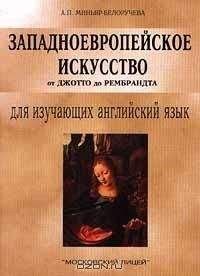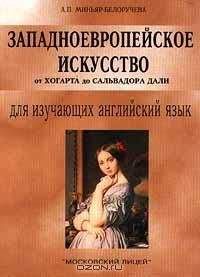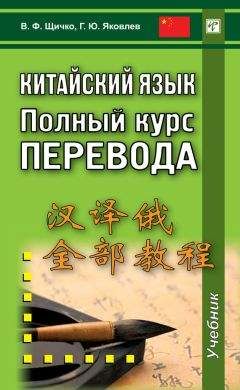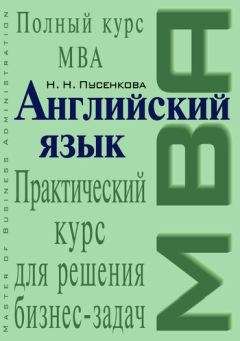Илья Франк - Английский язык с Грэмом Грином. Третий человек
"Would he have been conscious at all?"
"I understand he was for a short time, while they carried him into the house."
"In great pain?"
"Not necessarily."
"You are quite certain that it was an accident?"
Dr. Winkler put out a hand and straightened a crucifix. "I was not there. My opinion is limited to the cause of death. Have you any reason to be dissatisfied?"
The amateur has another advantage over the professional: he can be reckless. He can tell unnecessary truths and propound wild theories. Martins said, "The police had implicated Harry in a very serious racket. It seemed to me that he might have been murdered—or even killed himself."
"I am not competent to pass an opinion," Dr. Winkler said.
"Do you know a man called Cooler?"
"I don't think so."
"He was there when Harry was killed."
"Then of course I have met him. He wears a toupee."
"That was Kurtz."
Dr. Winkler was not only the cleanest, he was also the most cautious doctor that Martins had ever met. His statements were so limited that you could not for a moment doubt their veracity. He said, "There was a second man there." If he had to diagnose a case of scarlet fever he would, you felt, have confined himself to a statement that a rash was visible, that the temperature was so and so. He would never find himself in error at an inquest.
"Had you been Harry's doctor for long?" He seemed an odd man for Harry to choose—Harry who liked men with a certain recklessness, men capable of making mistakes.
"For about a year."
"Well, it's good of you to have seen me." Dr. Winkler bowed. When he bowed there was a very slight creak as though his shirt were made of celluloid. "I mustn't keep you from your patients any longer." Turning away from Dr. Winkler he confronted yet another crucifix, the figure hanging with arms above the head: a face of elongated El Greco agony. "That's a strange crucifix," he said.
"Jansenist," Dr. Winkler commented and closed his mouth sharply as though he had been guilty of giving away too much information.
"Never heard the word. Why are the arms above the head?"
Dr. Winkler said reluctantly, "Because he died, in their view, only for the elect."
7
AS I SEE IT (как я вижу это), turning over my files (перебирая мои папки; to turn over — переворачивать), the notes of conversations (записи разговоров), the statements of various characters (утверждения различных персонажей), it would have been still possible (было бы все еще возможно), at this moment (в этот момент), for Rollo Martins (для Ролло Мартинса) to have left Vienna safely (покинуть Вену безопасно). He had shown an unhealthy curiosity (он выказал нездоровое любопытство; health — здоровье), but the disease had been checked at every point (но болезнь была пресекаема/сдерживаема в каждой точке = все время пресекалась; to check — останавливать; препятствовать /продвижению/). Nobody had given anything away (никто ничего не выдал). The smooth wall of deception (гладкая стена обмана) had as yet shown no real crack to his roaming fingers (пока что не показала никакой реальной трещины его блуждающим пальцам = под его блуждающими пальцами). When Rollo Martins left Dr. Winkler's (когда Ролло Мартинс оставил доктора Винклера) he was in no danger (он не был ни в какой опасности). He could have gone home to bed at Sacher's (он мог бы пойти домой в кровать у Захера) and slept with a quiet mind (и спать спокойно: «со спокойной душой»; to sleep — спать; mind — разум; душевное состояние). He could even have visited Cooler at this stage without trouble (он мог даже посетить Кулера на этом этапе без проблем). No one was seriously disturbed (никто не был серьезно обеспокоен; to disturb — беспокоить, волновать, мешать, тревожить). Unfortunately for him (к несчастью: «несчастно» для него)—and there would always be periods of his life (и всегда бывали периоды его жизни) when he bitterly regretted it (когда он горько сожалел об этом)—he chose to go back to Harry's flat (он выбрал = решил пойти назад в квартиру Гарри; to choose — выбирать). He wanted to talk to the little vexed man (он хотел поговорить с маленьким сердитым человеком; vexed — раздосадованный; to vex — досаждать, раздражать; возмущать, сердить; беспокоить, волновать) who said he had seen the accident (который сказал, что он видел несчастный случай)—or had he really not said as much (или он не сказал на самом деле так много = или он этого все же не говорил)? There was a moment in the dark frozen street (был момент на темной морозной улице; frozen — замороженный; холодный, студеный; to freeze — замерзать, обледеневать, покрываться льдом), when he was inclined to go straight to Cooler (когда он был склонен пойти прямо к Кулеру), to complete his picture of those sinister birds (чтобы завершить свою картину тех зловещих птиц) who sat around Harry's body (которые сидели вокруг тела Гарри), but Rollo, being Rollo (но Ролло, будучи Ролло), decided to toss a coin (решил кинуть монетку) and the coin fell for the other action (и монетка упала для другого действия; to fall — падать), and the deaths of two men (и смертей двух человек = монетка легла по-другому, став причиной другого действия и смерти двух человек).
Perhaps the little man (возможно, маленький человек)—who bore the name of Koch (который носил фамилию Кох; to bear — носить)—had drunk a glass too much of wine (выпил лишний стакан: «один стакан слишком много» вина), perhaps he had simply spent a good day at the office (возможно, он просто провел хороший день на работе; to spend — тратить, проводить время), but this time (но на этот раз), when Rollo Martins rang his bell (когда Ролло Мартинс позвонил в его дверь; to ring — звонить; bell — колокол, колокольчик; звонок), he was friendly and quite ready to talk (он был дружелюбным и вполне готовым разговаривать). He had just finished dinner (он только что закончил ужин) and had crumbs on his moustache (и у него были крошки на усах). "Ah, I remember you (а, я помню вас). You are Herr Lime's friend (вы друг герра Лайма)."
He welcomed Martins in (он пригласил Мартинса внутрь) with great cordiality (с большой сердечностью) and introduced him to a mountainous wife (и представил его громадной жене; mountain — гора) whom he obviously kept under very strict control (которую он очевидно держал под очень суровым контролем; strict — строгий, суровый /не допускающий никаких послаблений, снисхождений/). "Ah, in the old days (ах, в старые дни) I would have offered you a cup of coffee (я бы предложил вам чашку кофе), but now (но теперь)—"
Martins passed round his cigarette case (Мартинс пустил по кругу: «вокруг» свой портсигар: «сигаретную коробку») and the atmosphere of cordiality deepened (и атмосфера сердечности углубилась). "When you rang yesterday I was a little abrupt (когда вы звонили вчера, я был немного резок; abrupt — крутой, обрывистый; резкий, грубый /о манерах и т. п./)," Herr Koch said, "but I had a touch of migraine (но у меня был легкий приступ мигрени; touch — прикосновение; чуточка, примесь, налет, оттенок; легкий приступ /болезни/) and my wife was out (и моей жены не была дома: «и моя жена была снаружи»), so I had to answer the door myself (так что я должен был открыть: «ответить» дверь сам)."
"Did you tell me (вы сказали мне) that you had actually seen the accident (что вы на самом деле видели несчастный случай; actually — фактически, на самом деле, в действительности)?"
various ['veqrIqs], unhealthy [An'helTI], curiosity ["kjuqrI'OsqtI], disease [dI'zi:z], smooth [smu:D], period ['pIqrIqd], regret [rI'gret], inclined [In'klaInd], sinister ['sInIstq], ready ['redI], cordiality ["kO:dI'xlqtI], introduce ["Intrq'dju:s], mountainous ['mauntInqs], control [kqn'trqul], atmosphere ['xtmqsfIq], abrupt [q'brApt], migraine ['mi:greIn], actually ['xktSuqlI]
AS I SEE IT, turning over my files, the notes of conversations, the statements of various characters, it would have been still possible, at this moment, for Rollo Martins to have left Vienna safely. He had shown an unhealthy curiosity, but the disease had been checked at every point. Nobody had given anything away. The smooth wall of deception had as yet shown no real crack to his roaming fingers. When Rollo Martins left Dr. Winkler's he was in no danger. He could have gone home to bed at Sacher's and slept with a quiet mind. He could even have visited Cooler at this stage without trouble. No one was seriously disturbed. Unfortunately for him—and there would always be periods of his life when he bitterly regretted it—he chose to go back to Harry's flat. He wanted to talk to the little vexed man who said he had seen the accident—or had he really not said as much? There was a moment in the dark frozen street, when he was inclined to go straight to Cooler, to complete his picture of those sinister birds who sat around Harry's body, but Rollo, being Rollo, decided to toss a coin and the coin fell for the other action, and the deaths of two men.
Perhaps the little man—who bore the name of Koch —had drunk a glass too much of wine, perhaps he had simply spent a good day at the office, but this time, when Rollo Martins rang his bell, he was friendly and quite ready to talk. He had just finished dinner and had crumbs on his moustache. "Ah, I remember you. You are Herr Lime's friend."
He welcomed Martins in with great cordiality and introduced him to a mountainous wife whom he obviously kept under very strict control. "Ah, in the old days I would have offered you a cup of coffee, but now—"
Martins passed round his cigarette case and the atmosphere of cordiality deepened. "When you rang yesterday I was a little abrupt," Herr Koch said, "but I had a touch of migraine and my wife was out, so I had to answer the door myself."
"Did you tell me that you had actually seen the accident?"
Herr Koch exchanged glances with his wife (герр Кох обменялся взглядами со своей женой). "The inquest is over, Ilse (расследование закончено, Илзе). There is no harm (нет никакого вреда = нет опасности /с ним разговаривать/). You can trust my judgment (ты можешь доверять моему суждению). The gentleman is a friend (этот господин — друг). Yes, I saw the accident (да, я видел несчастный случай), but you are the only one who knows (но вы единственный человек, кто знает /об этом/). When I say that I saw it (когда я говорю, что я его видел), perhaps I should say that I heard it (возможно, я должен бы сказать, что я его слышал). I heard the brakes put on (я слышал, как были включены тормоза; to put on — запускать, включать, приводить в действие) and the sound of the skid (и звук скольжения колес; skid — скаты, полоз, салазки; скольжение, скользящее движение; юз, занос /автомобиля/), and I got to the window in time (и я добрался к окну /как раз/ вовремя) to see them carry the body to the house (чтобы увидеть, как они несут тело к дому)."
"But didn't you give evidence (но вы не дали показания)?"
"It is better not to be mixed up in such things (лучше не быть замешанным в таких вещах). My office cannot spare me (моя контора не может обойтись без меня; to spare — беречь, жалеть, сберегать, экономить; обходиться /без чего-л./). We are short of staff (нам не хватает сотрудников; short — короткий; испытывающий недостаток /чего-л. — of/; staff — штат служащих; служебный персонал; личный состав), and of course I did not actually see (и конечно я по сути не видел)..."
"But you told me yesterday how it happened (но вы рассказали мне вчера, как это случилось)."
"That was how they described it in the papers (это было, как они описали это в газетах = именно так было описано в газетах)."
"Was he in great pain (он был в большой боли = испытывал мучения)?"
"He was dead (он был мертв). I looked right down from my window here (я посмотрел прямо вниз из этого вот моего окна: «из моего окна здесь») and I saw his face (и я увидел его лицо). I know when a man is dead (я знаю, когда человек мертв). You see (видите ли), it is, in a way, my business (это, в некотором роде, моя работа). I am the head clerk at the mortuary (я главный клерк в морге; clerk — конторский служащий, клерк; mortuary — погребальный, похоронный, траурный, относящийся к похоронам; морг, покойницкая)."




